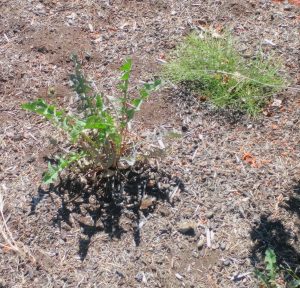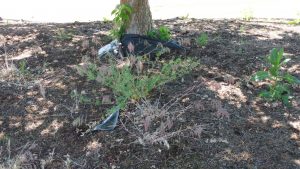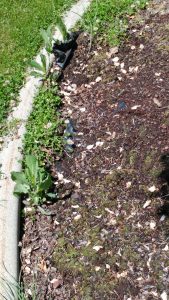This isn’t the first time I’ve ranted about bad mulch choices and it certainly won’t be the last. But this pictorial cautionary tale is too important to pass up.
We already know that sheet mulches can be death to microbes, plant roots and animals living in the soil underneath. Our newly published research shows that landscape fabric reduces carbon dioxide movement between the soil and atmosphere about 1,000 times more than wood chip mulches do: plastic mulches are even worse. Oxygen movement will be likewise affected. And while gaps and holes in these barriers can lessen the impact, the question remains: why would you use ANY mulch that reduces gas movement? 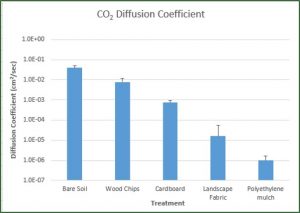 Yet people persist in using fabrics and plastics, usually to “smother” weeds (and that verb should set off alarm bells for anyone thinking about collateral damage to soil life). But weeds are weeds for a reason, and they will eventually colonize the surface of sheet mulches as soil, organic matter, and water collect over time.
Yet people persist in using fabrics and plastics, usually to “smother” weeds (and that verb should set off alarm bells for anyone thinking about collateral damage to soil life). But weeds are weeds for a reason, and they will eventually colonize the surface of sheet mulches as soil, organic matter, and water collect over time.
So without further ado, here is a case study of what happens when sheet mulch is used for landscape weed control.
These irrigated landscape beds are in Wenatchee, Washington, which has hot, dry summers. As you can see, bark mulch has been used to hide the shame of sheet mulching. And from a distance it looks…okay.
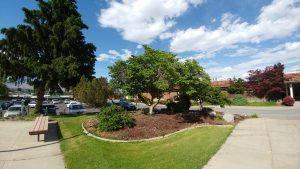 Upon closer inspection, you can see the shroud of death emerging from the bark mulch (which has no means of staying in place, especially on a slope).
Upon closer inspection, you can see the shroud of death emerging from the bark mulch (which has no means of staying in place, especially on a slope).
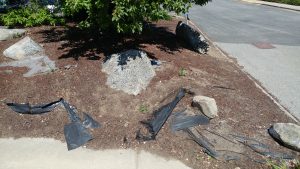 And even close you can see the soil that’s blown in, along with the bark and other organic matter. Just add water, and you get weeds!
And even close you can see the soil that’s blown in, along with the bark and other organic matter. Just add water, and you get weeds!
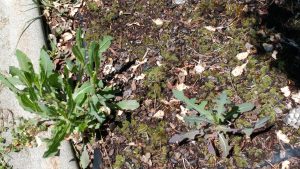 Weeds, weeds, weeds! Lots of weeds. Sunny weeds!
Weeds, weeds, weeds! Lots of weeds. Sunny weeds!
Rocky weeds!
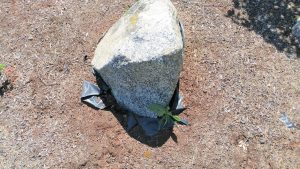 The weeds are thriving – but the trees are not. The crowns are dying…
The weeds are thriving – but the trees are not. The crowns are dying…
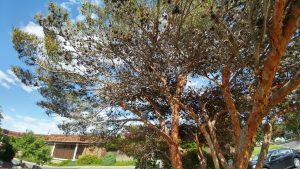 …and the trunks are suckering.
…and the trunks are suckering.
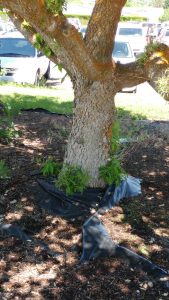 But you’ll note that the trees in the first photo outside of the beds are thriving.
But you’ll note that the trees in the first photo outside of the beds are thriving.
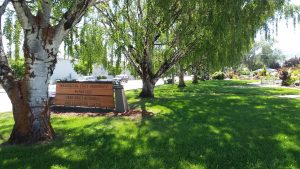 And it’s all because of that “weed control fabric.” Which is working so well that this landscape had to be treated with herbicide the day I was there – to control the weeds.
And it’s all because of that “weed control fabric.” Which is working so well that this landscape had to be treated with herbicide the day I was there – to control the weeds.
